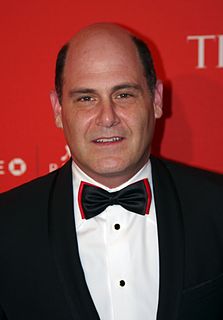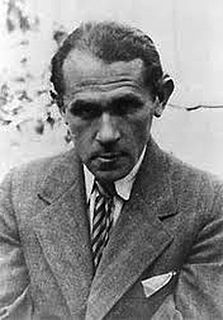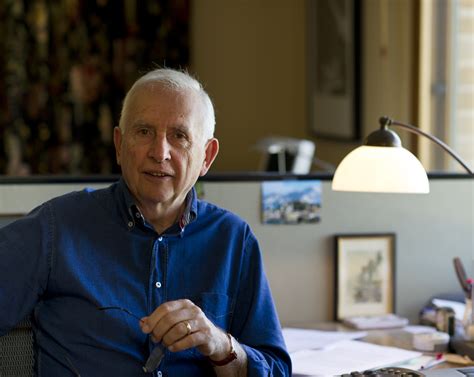A Quote by Gilbert K. Chesterton
With every step of our lives we enter into the middle of some story which we are certain to misunderstand.
Related Quotes
When some people rejoin with “All Lives Matter” they misunderstand the problem, but not because their message is untrue. It is true that all lives matter, but it is equally true that not all lives are understood to matter which is precisely why it is most important to name the lives that have not mattered, and are struggling to matter in the way they deserve.
God leads us step by step, from event to event. Only afterward, as we look back over the way we have come and reconsider certain important moments in our lives in the light of all that has followed them, or when we survey the whole progress of our lives, do we experience the feeling of having been led without knowing it, the feeling that God has mysteriously guided us.
There's this sense of being strange, which is at the heart of every creative person. Every writer, every actor, every director knows who Ripley is. We've made careers and lives out of pretending, making things up, inhabiting other people's stories and lives. That's what I do every day. . . . The story is so audacious and subversive: a central character who behaves badly and isn't apparently caught. That intrigued me no end.
I know that telling the story, there are certain events I want to skip, and certain events I want to hit. The time passing allows for - if you're really following people's lives, and this isn't a cartoon - someone gets pregnant, a child will be born, etc. You really don't want to be locked into "Every episode is a month later." The show is very intense to make. There's always going to be some downtime between seasons, and to me, it really helps to come back to the next season in the reality of that world, and have almost as much time passed in their lives as has passed in yours.
Literature is an aspect of story and story is all that exists to make sense of reality. War is a story. Now you begin to see how powerful story is because it informs our worldview and our every action, our every justification is a story. So how can story not be truly transformative? I've seen it happen in real ways, not in sentimental ways or in the jargon of New Age liberal ideology.
One of the most important responsibilities of leaders in any setting - including business organisations - is to tell us our own story; to explain us to ourselves; to help us weave some meaning and purpose into the fabric of our lives; to illuminate our understanding of where we have come from; to paint word pictures of our future onto which we can project our aspirations.
What if, instead of being afraid of even talking about death, we saw our lives in some ways as preparation for it.
What if we were taught to ponder it and reflect on it and talk about it and enter it and rehearse it and try it on?What if, rather than being cast out and defined by some terminal category, you were identified as someone in the middle of a transformation that could deepen your soul, open your heart, and all the while-even if and particularly when you were dying-you would be supported by and be part of a community?
The last few decades have been marked by a special cultivation of the romance of the future. We seem to have made up our minds to misunderstand what has happened; and we turn, with a sort of relief, to stating what will happen-which is apparently much easier...The modern mind is forced towards the future by a certain sense of fatigue, not unmixed with terror, with which it regards the past.




































